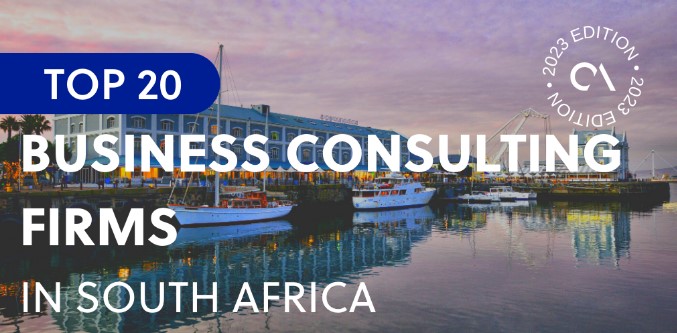Starting your own business means that there are many costs involved: employee costs, the cost of funding (capital), the cost of marketing, and the cost of monthly expenses. But why do we never discuss the biggest and perhaps most crucial cost—the emotional cost of starting your own business?
JTB Consulting has been included in Outsource Accelerator’s 2023 Edition of the Top 20 Business Consulting Firms in South Africa. We are honoured to have been included among global leaders like Mercer, EY, and Accenture. Read more here: JTB Consulting is among the Top 20 Business Consulting Firms in South Africa.

Starting Your Own Business comes with Emotional Risks.
Imagine expressing numerically how much “emotional capital” we have in the bank—the amount of endurance, positivity, joy, and physical wellness we have left. New entrepreneurs and startups run out of financial and emotional capital when starting a new business. Starting your own business may sound fun and easy, but it does take its toll on you.

To Start Your Own Business: Let’s be honest for a minute.
The problem is that we don’t discuss how we run out of emotional capital. It is a taboo topic in a world where every second Instagram or LinkedIn post shows a successful entrepreneur (or so it seems). It is easier to hide this “empty emotional bank account” from the world. Failure is arguably our biggest fear. In a world where success (real or not) is thrown in our faces on social media and television, why would we want to share our failures?
Business failure is no joke. Read more about this topic in our article, Failure of Businesses in South Africa is No Joke.
The areas in which we feel real pain can be summarised as follows:
To Start Your Own Business: The Cost of Being Numero Uno, Really Alone.
If you worked for a boss in the past, you had three things that you probably took for granted – a guaranteed salary, peers and co-workers. You arrived in the office every day, mingled with people, were introduced to countless more people, enjoyed lunch and happy hours, complained about your boss, and most of the time, sympathised with co-workers in the same situation.
Being a startup’s founder is like being the new neighbour on the block, yet no one ever comes knocking on your door with freshly baked cookies. It is a genuinely lonely feeling. You no longer have peers or co-workers. And now, you are the boss, and you can’t complain about the boss anymore. Staff meetings are primarily between you, yourself, and the voices in your head.
When you manage to go home after endless hours of burning the midnight oil, things don’t get any better. Your better half may not fully understand the battle you are going through. Likewise, your family and friends still can’t understand why you left a stable job, gave up a career, and are heading down this path of being a lone wolf entrepreneur.
If you are honest with yourself, the chances are that the emotional cost of being an entrepreneur (alone) will or has already taken its toll on most of your relationships. To start your own business means you’ll make mistakes. Read more on Startup Mistakes to Avoid.
To Start Your Own Business: The Cost of Playing the Long Game. Waiting. More Waiting. And Yet More Waiting.
When you started this dream business, it felt amazing. You were full of energy, having almost found that pot of gold at the end of the rainbow. You are free. You are your boss. You can do what you want. The money will roll in!
Every task you completed felt like significant progress – “Yay! I registered a website domain! Whoopee, my website is up and running. Hooray, I got my first call”.

These first wins came quickly, and you were on cloud nine! But then this period wore off. These weren’t a bunch of wins day in and day out. It is a bunch of waiting for wins and praying for wins. That little devil on your shoulder tells you you can’t be sure there will be more wins. The first client that signed up with you was excellent, but it took a while for that second client to sign up. And where in the world will you find the third?
Days turned into weeks, weeks into months, and months into quarters, and still, every morning, you wake up believing that the breakthrough, that real victory, is just around the corner. Apart from your empty bank account, your emotional account is nearing zero. Never in a million years would you have thought how absurdly long this journey would take.
You probably knew that starting a new business would be fast-paced, but no one ever told you that fast-paced wasn’t synonymous with rapid growth and quick gains. Fast-paced was another term for constant late nights and a truckload of work. Your expectations were probably wrongly set to start with. It doesn’t take five months to reach success. It takes years, if not decades, to grow a business. Be honest with yourself. Are you in it for the short-haul or the long game? Perhaps it is time to realign your expectations with reality and facts.
To Start Your Own Business: Middle of the Month Salticrax. Going Broke and its True Cost.
Playing the long game will require emotional stamina, which you may be able to gather, but you may not be able to have control over financial stamina. So when the clouds disappear, and that cloud nine feeling wears off, you sit at 1 a.m. with three browser tabs open. One highlights your bank account balance, which is freefalling to zero. The second is your credit card balance, which is nearing its limit. And the third shows full-time positions advertised on LinkedIn, inviting you to return to the corporate world.
You’re past the point of convincing your better half or family members from whom you borrowed money that “we’re investing in the future!” and onto the point of “I have no idea how we are going to keep the lights on soon”. Although, you don’t have to answer that question, as Eskom will answer it for you with its regular load shedding.
What exacerbates this emotional cost is that it never seems like anyone else is facing the same problem. I find it laughable and sad at the same time that there are entrepreneurs out there who portray a picture to the world that it is easy to get rich (e.g. posts of a new entrepreneur standing next to a new Range Rover saying that I have finally made it). In my opinion, if you started the business to get rich, you should probably close your doors right away. That should never be your goal.
It would help to consider your business (startup) as a means to an end. The eventual end is a startup that will one day leave a small legacy you can be proud of with enough food on the table, but the means right now are doing anything to keep the lights on until that day comes. Sometimes, that means another part-time job. Other times, that means living below your means.
To Start Your Own Business: Why Don’t We Get Real?
We must stop pretending we are superheroes who can build a new business from nothing with no real serious toll. Thinking our relationships are perfect, our finances are amazing, and our stress levels are low.
Success doesn’t come for free. It wasn’t easy. Whatever you think of the person/people you aspire to be, they probably spent 100x more in emotional capital than the risk they took in funding the business with personal capital.
We need to start a conversation about topics other than those contained herein. Perhaps the most important topic we don’t discuss is the emotional investment in starting your own business and its cost to an entrepreneur. For this and other related topics, contact our Founder, Dr. Thommie Burger.
In case you missed it:
A Financial Model is Vital for Your Business: Here are 7 Reasons Why.
Small Business Funding 2023: Here’s our Free Supportive Guide.







